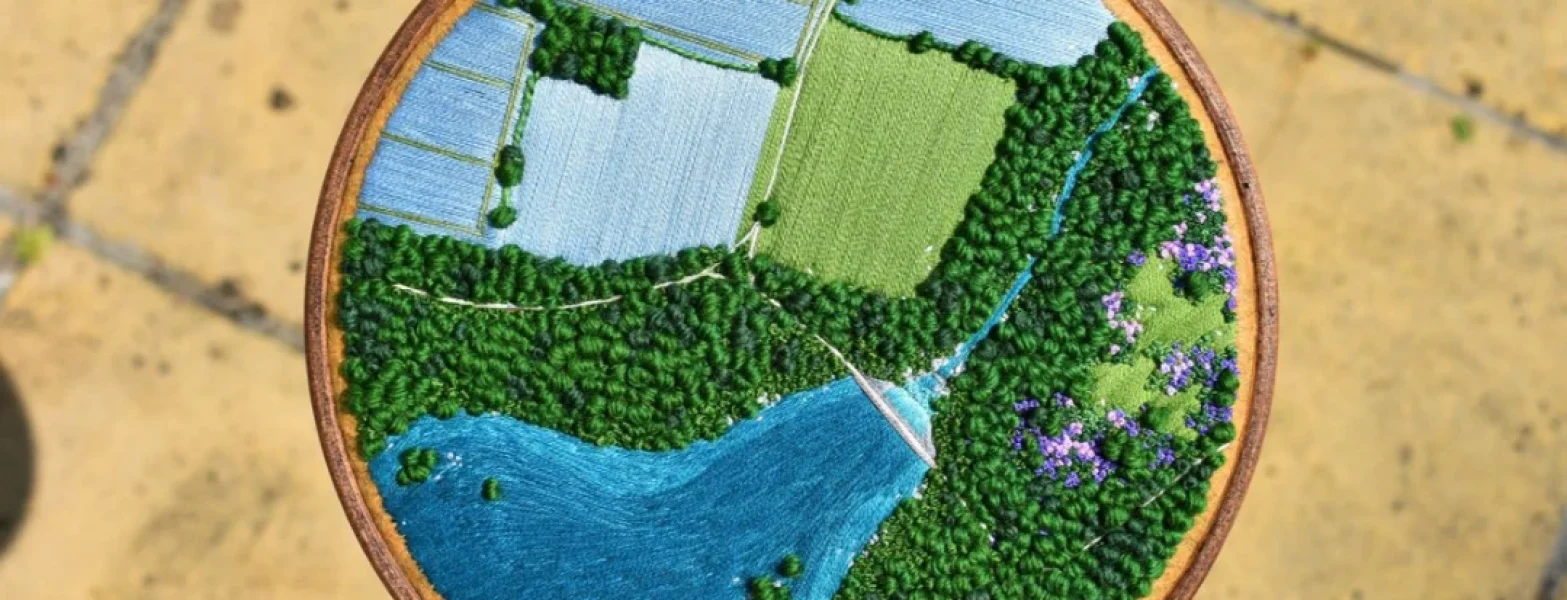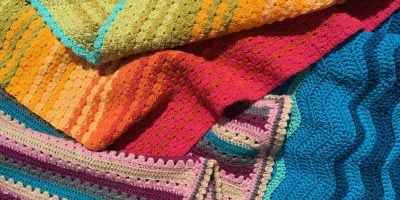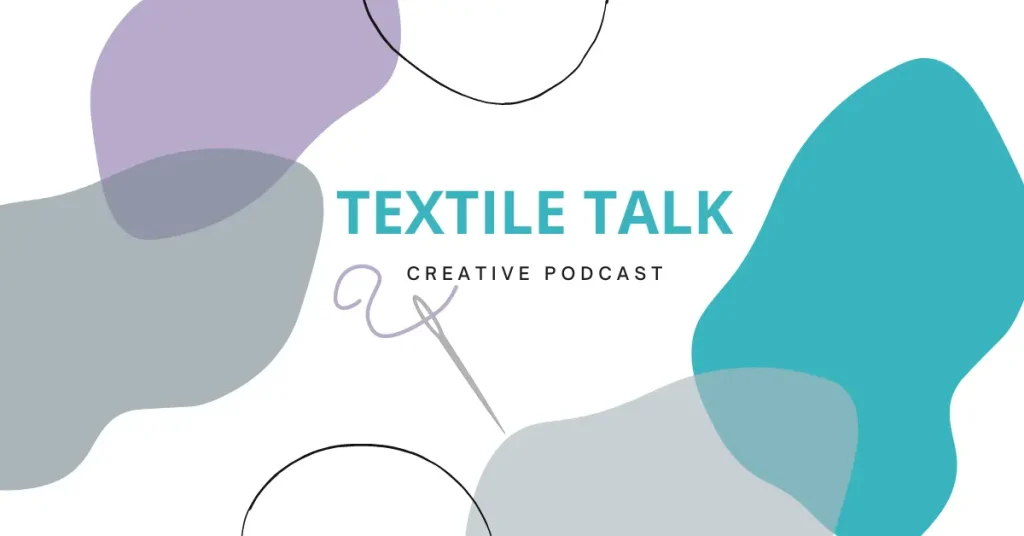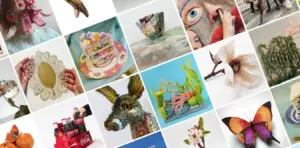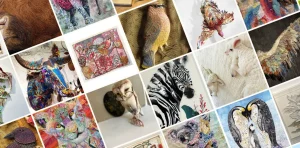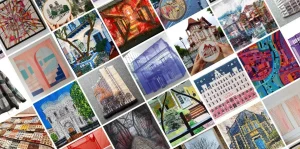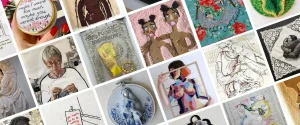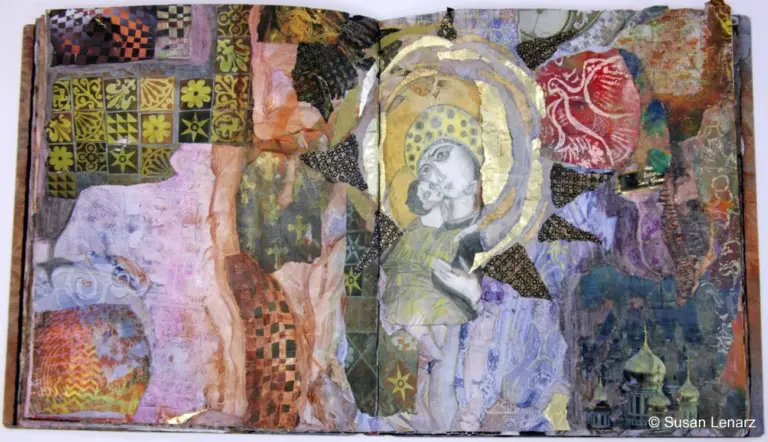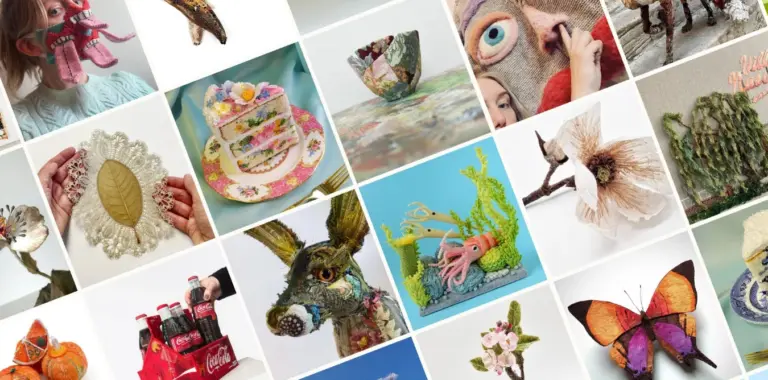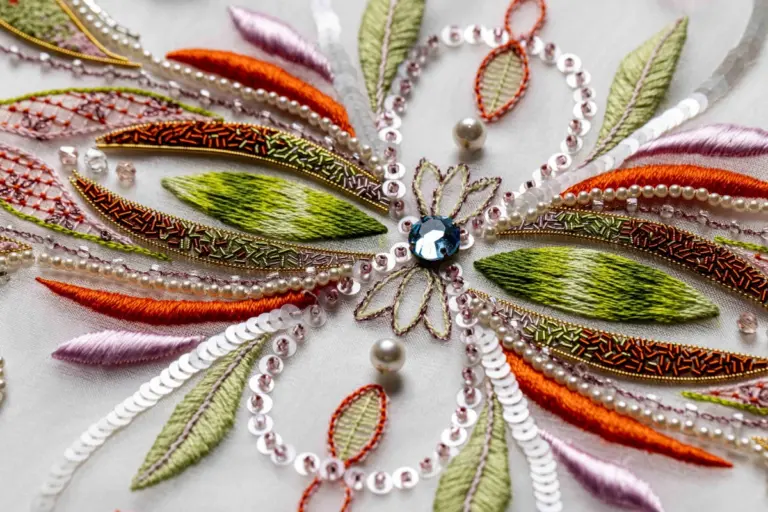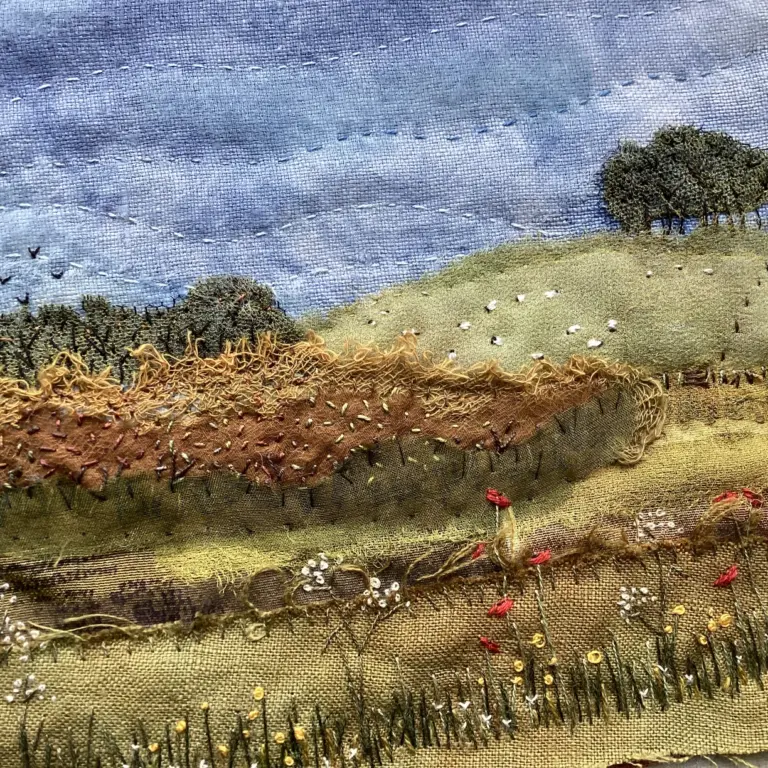In the serene landscapes of South West Devon, a young artist finds inspiration amidst the rolling fields, dense woodlands, and meandering rivers. Victoria Rose Richards, at just 25 years old, has already carved a niche for herself in the world of embroidery artistry. Her creations, meticulously crafted with threads and an assortment of stitches, offer viewers a bird’s-eye view of the countryside, evoking a sense of nostalgia and tranquillity.
Victoria Rose Richards’ journey into the realm of embroidery began as a quest to combat boredom and rediscover joy. Armed with her grandmother’s old tin of threads, she embarked on a creative exploration that would soon become her life’s passion. What started as a hobby quickly transformed into a full-time profession, as Richards found solace and deep fulfilment in the intricate art of stitching.
Her artworks, each taking anywhere from 10 to 25 hours to complete, capture the essence of rural landscapes with remarkable detail. Through satin stitches and French knots, she weaves a tapestry of fields, forests, and water bodies, inviting viewers to immerse themselves in scenes reminiscent of childhood adventures and idyllic countryside retreats.
Her deep connection to her surroundings is evident in every stitch she makes. Raised and based in South West Devon, she draws inspiration from the natural beauty that envelops her, infusing her artworks with a sense of place and belonging. It’s this intimate relationship with her environment that lends authenticity to her creations, transporting viewers to a world where time stands still and nature reigns supreme.
Despite her young age, Richards has already garnered recognition for her work. Her embroideries have been selected for prestigious exhibitions, including the ING Discerning Eye Exhibition, showcasing her talent on a national stage. As well taking commissions she sells individual pieces, prints and calendars of her work over on her site, offering admirers the opportunity to bring a piece of her enchanting landscapes into their homes.
As she continues to weave her magic with threads and needles, Victoria Rose Richards remains a shining example of artistic ingenuity and dedication. Through her aerial embroideries, she not only captures the beauty of the countryside but also preserves the essence of simpler, rose-tinted memories for generations to come. So, join us as we delve deeper into the world of this remarkable artist and discover the stories behind her mesmerising creations.
Victoria Rose Richards
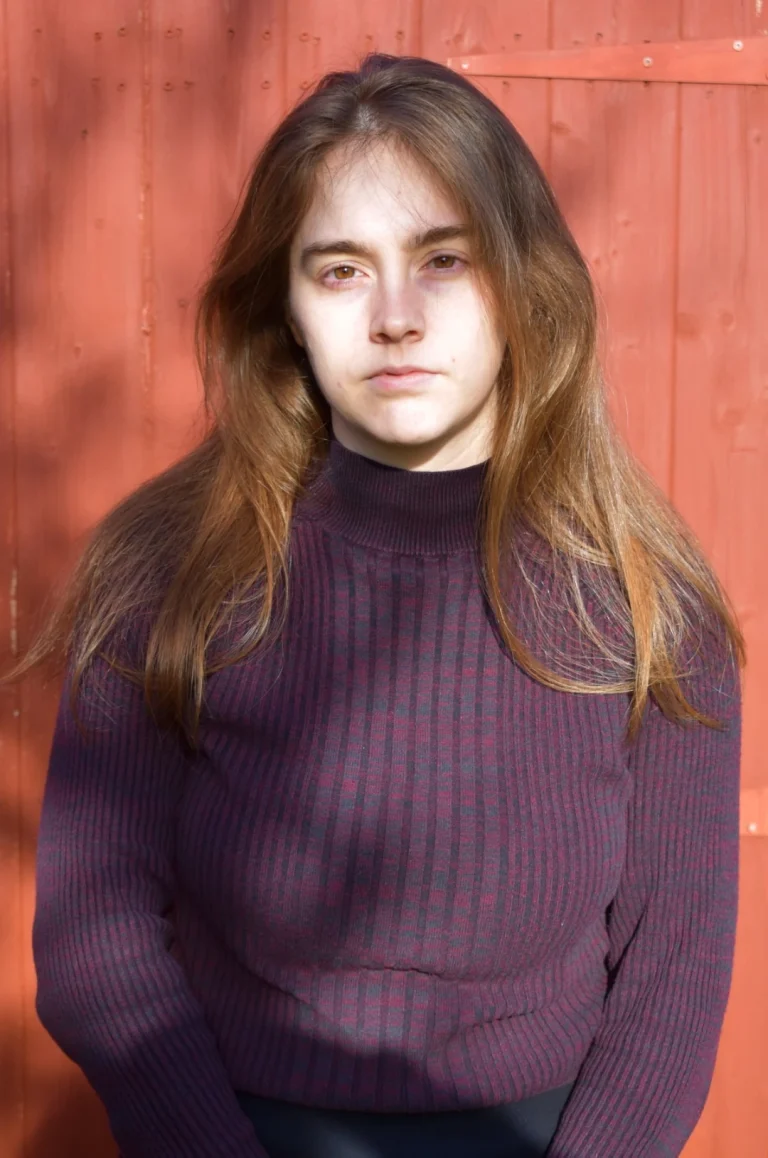
“I actually began embroidery while studying for my biology degree a university and found the creative expression a good distraction during my free time. I’ve struggled with bad stress and anxiety related to my autism since I was in my early teens and while I enjoyed school and academic subjects, I needed artistic freedom to soothe my brain too.”
What are you currently working on?
The piece I’m currently working on is a canal-inspired landscape. I visited and stayed by the Kennet and Avon canal back in 2018 and I’ve thought of it many times since. I loved the laziness of the canal boats, the houses, countryside, bridges, the canal cut through, the layered locks, and the overhanging trees. Back in 2020 I did a piece inspired by it but I had another burst of inspiration from it recently after looking at holiday pictures. The last one had the canal surrounded by trees and fields. For this one, I want a more geometric feeling so I’ve included roads and paths around it to break the landscape up into segments.
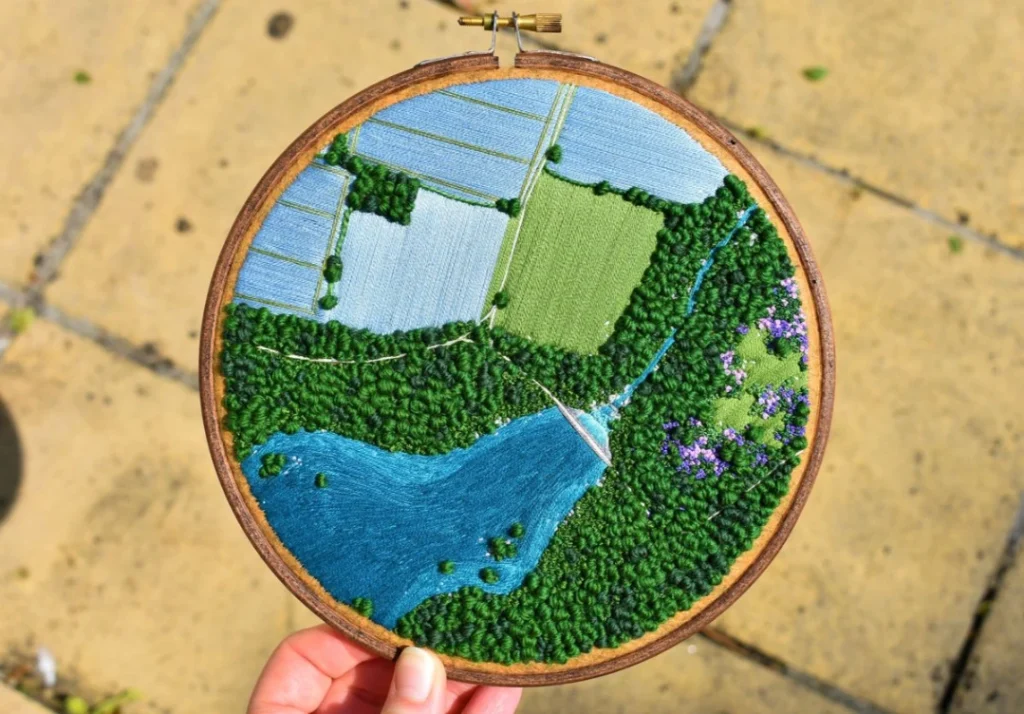
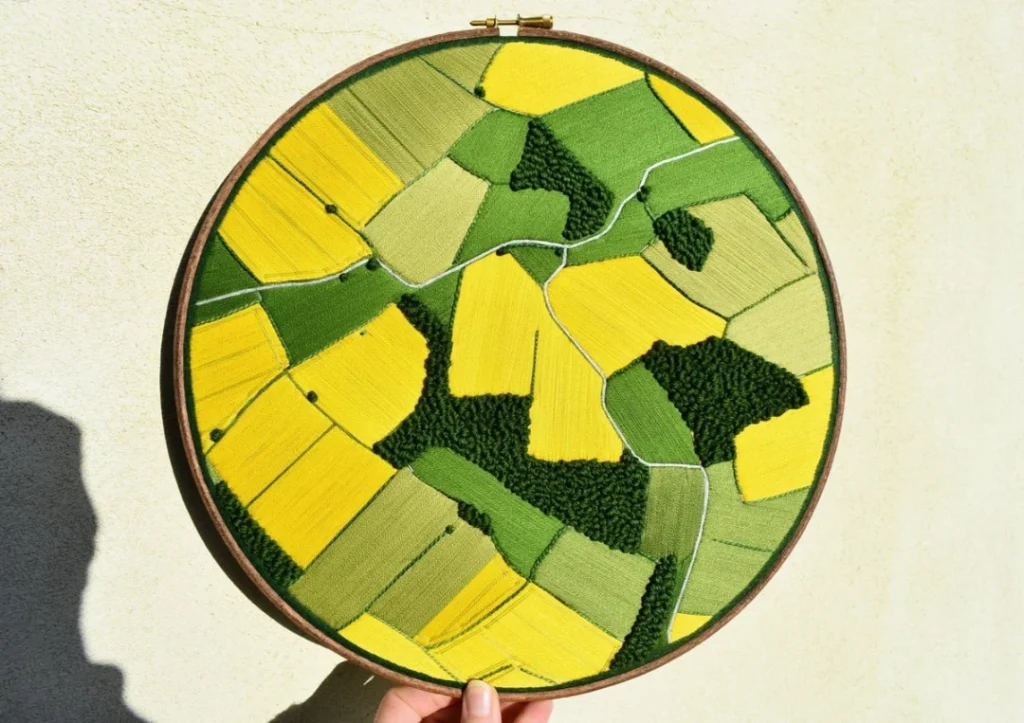
What was your first memory of stitching – who taught you?
I think my first distinct memory was making a fluffy toy frog from a pattern I got given as a gift! I was quite young, under 10 I’d say, and although I played around with sewing on and off for years, I didn’t connect to it like I do now. There was an expectation to focus more on making items like clothes, toys, and cushions. When I realised I could use it for more artistic pursuits like I do now, that’s when the connection became a lot deeper.
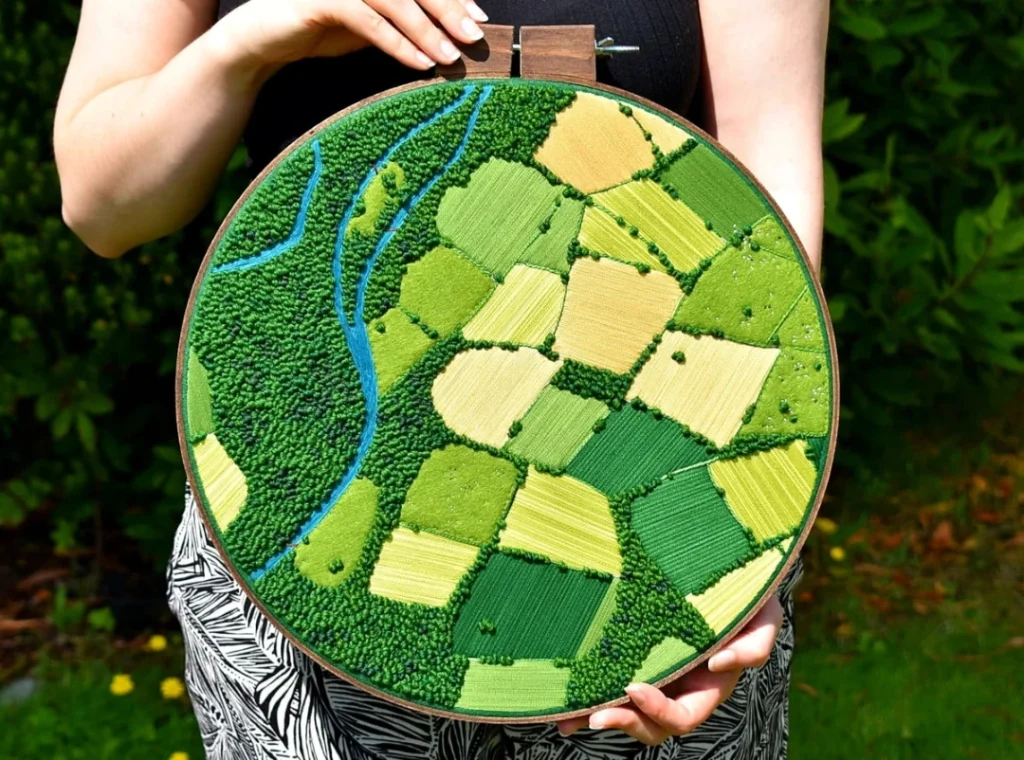
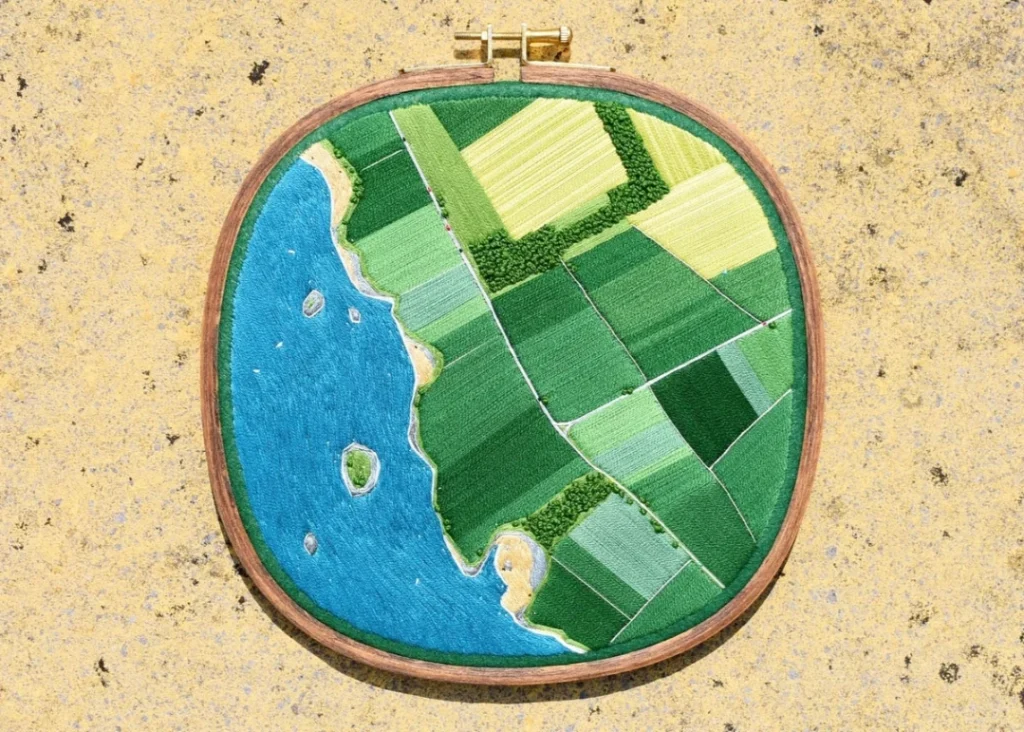
You take a lot of your inspiration from aerial views of the countryside, which are fab and really unusual. Is this as a result of your biology training?
I don’t think so! Although I certainly gravitated towards my embroidery and biology degree for the same reasons, which was my love of the countryside and ecology! And I think my biology does influence some of my landscapes too. It did more at the start when I was actually at university: I did a small series of tropical island pieces that were actually my unofficial first aerials, which I’d been inspired to do by my studies – a large focus of my biology degree in the last year was marine science and tropical ecology.
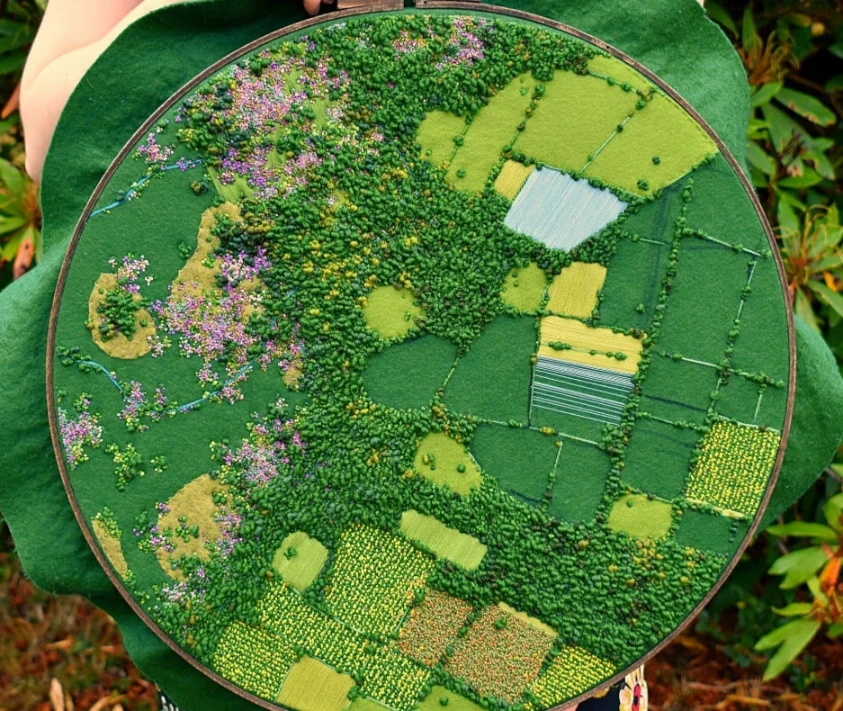
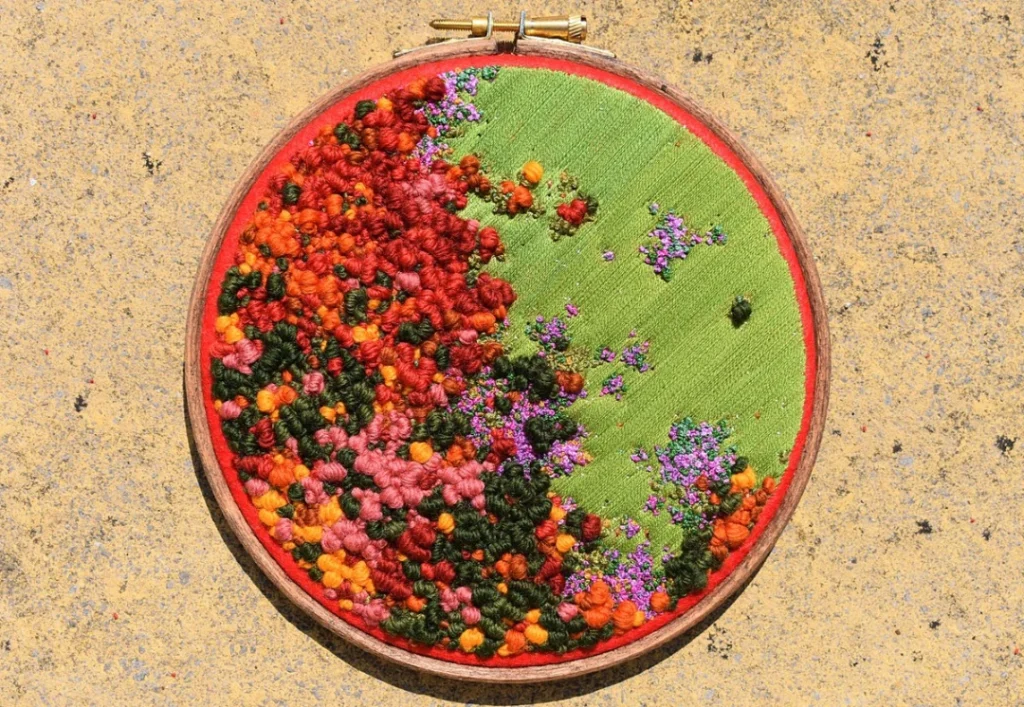
You take a lot of your inspiration from aerial views of the countryside, which are fab and really unusual. Is this as a result of your biology training?
I don’t think so! Although I certainly gravitated towards my embroidery and biology degree for the same reasons, which was my love of the countryside and ecology! And I think my biology does influence some of my landscapes too. It did more at the start when I was actually at university: I did a small series of tropical island pieces that were actually my unofficial first aerials, which I’d been inspired to do by my studies – a large focus of my biology degree in the last year was marine science and tropical ecology.
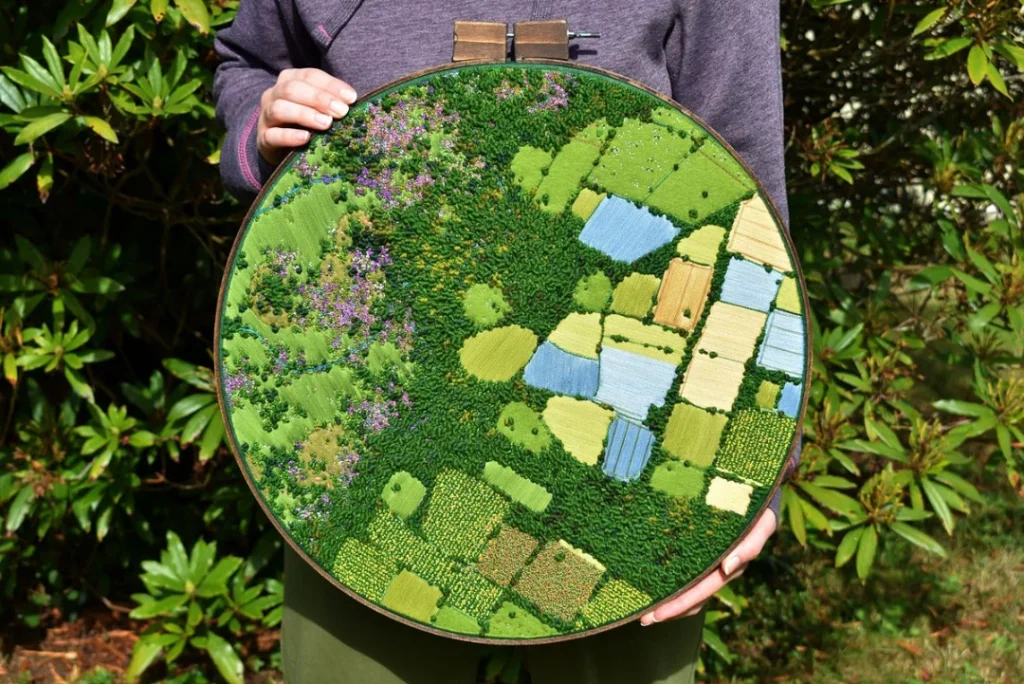
Can you talk us through the process of your embroidery from taking the photo of the view to working the final piece?
I don’t actually take photos of the view for my landscapes – they’re either from my imagination or Google Earth. However I can share my process! If I’m honest, I do very little planning ahead or sketching for most my pieces; instead, it is much more intuitive. A field piece for example – I start with the trees first, deciding as I go what shape I want them to form. When I’ve done the majority, I sketch out the rough field shapes, deciding as I go whether I want a more formally-structured or randomly-structured landscape. Once I’m happy with that, I decide what they’ll actually be, and the final step is adding the details like animals, tractor tracks, vehicles, etc. For the Google Earth landscapes, I do all the elements in the same order but I actually sketch out an exact plan.
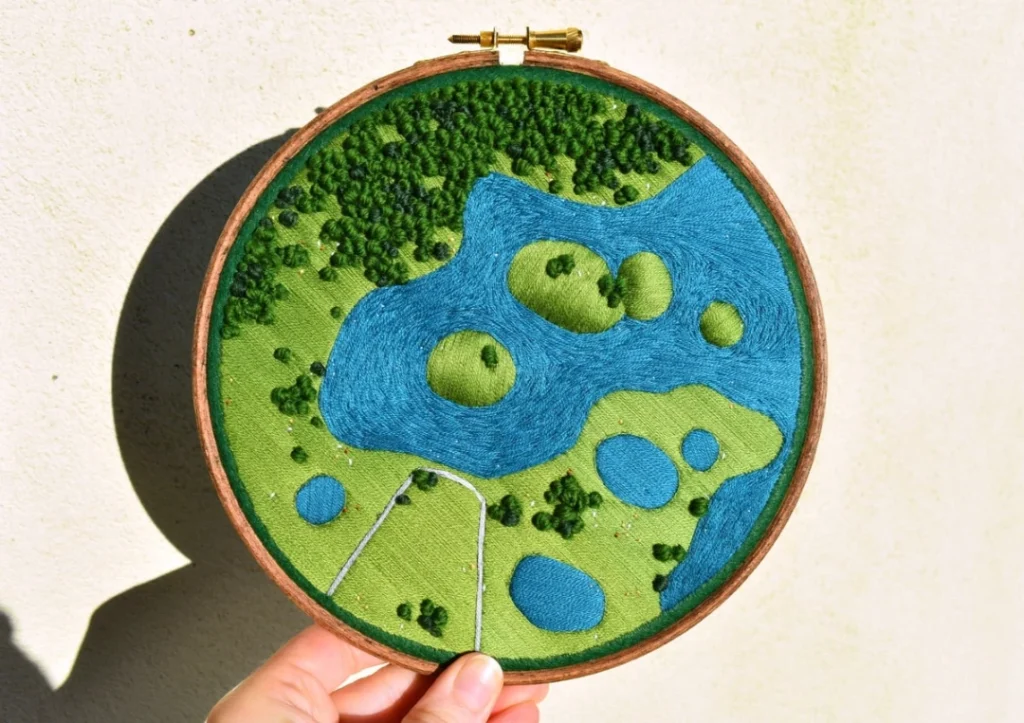
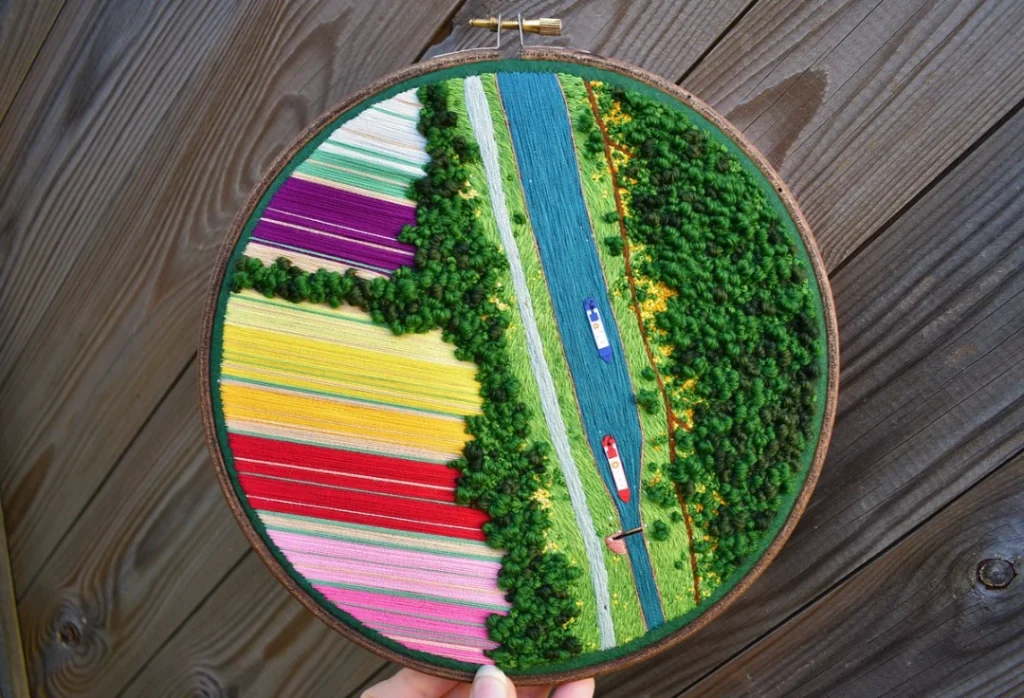
You’ve just had your first scientific paper published – many congratulations! You must find such a contrast between the artistic embroider and the factual scientist sides of your work?
There was – I actually began embroidery while studying for my biology degree a university and found the creative expression a good distraction during my free time. I’ve struggled with bad stress and anxiety related to my autism since I was in my early teens and while I enjoyed school and academic subjects, I needed artistic freedom to soothe my brain too. Other than that, I do find the contrast refreshing!
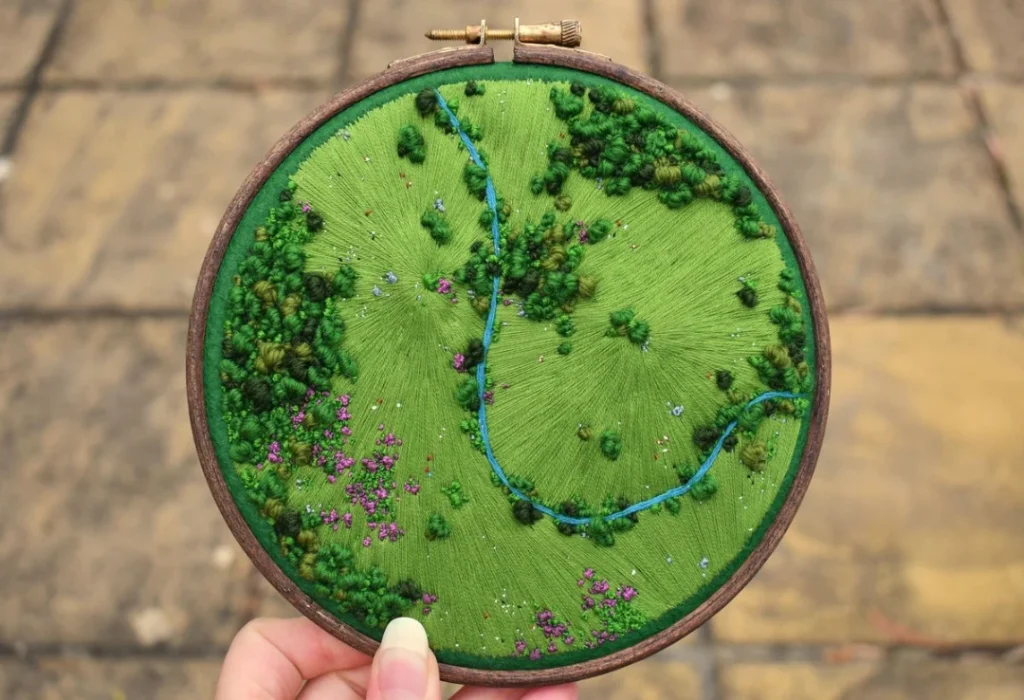
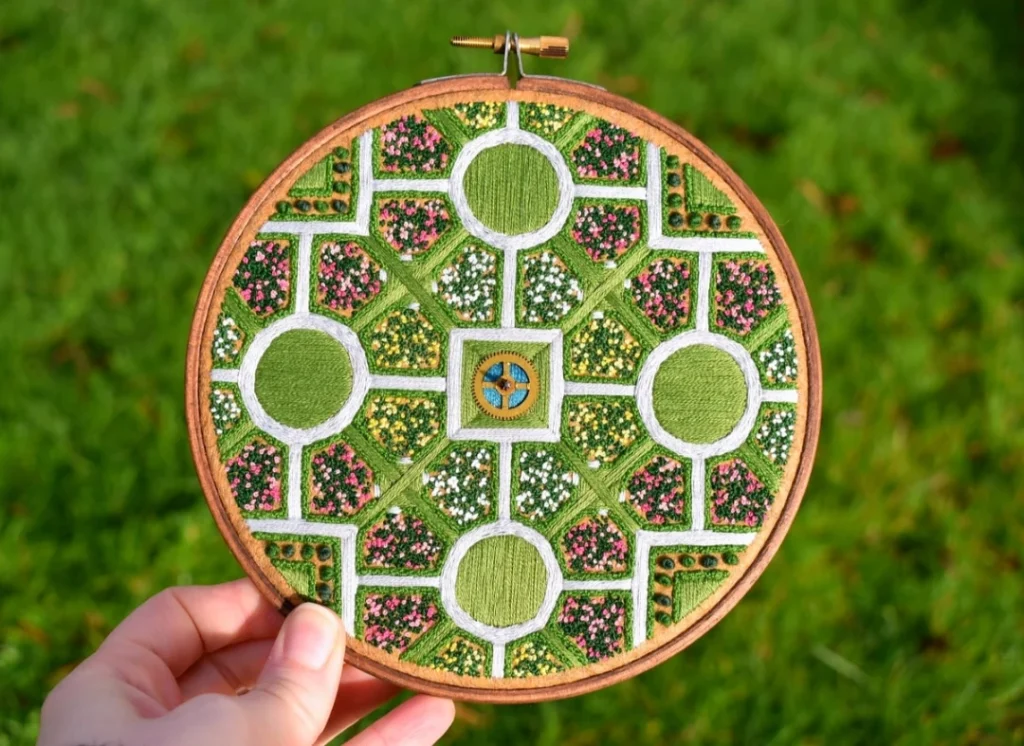
What artists inspire you personally?
In terms of direct artistic inspiration, I don’t have any artists that inspire my work. However, I do have some I look up to and find very talented, including a couple other aerial artists I’d love to shout out! These are Fenny Suter, Wools Symphony, Helen D Wilde, Hazel Glass on Instagram.
What’s next?
Next, I have a list of projects I want to explore during the next two years – some are new versions of aerial landscapes and others are related to aerials but not what I’ve done before. I don’t want to give too much away right now! But I don’t have any books or similar in the works – I want to one day, but want to develop myself more first.
Discover more by visiting her website or follow her on Instagram.

